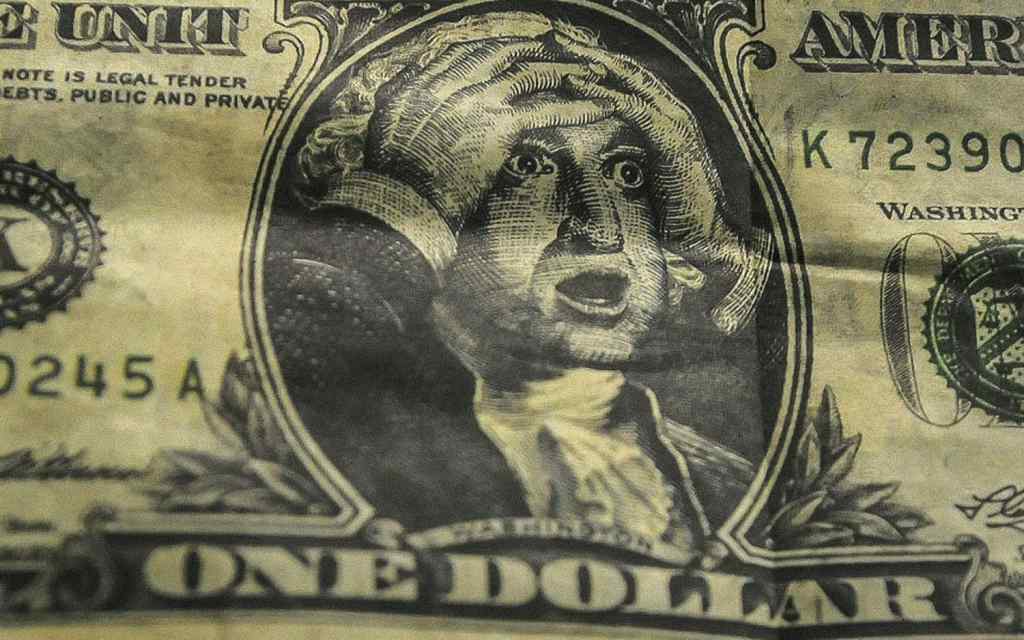
There is only one thing that can not be compromised when speaking of capitalism: profit. If an organisation moves into a non-profit scenario, it means that that company is sort of broken, something is wrong and therefore all efforts should be done to reverse the losses so its back in track of the economic growth dependency.
If we focus on the big picture, countries work in a similar way. If there is plenty of money running freely, and if the quantity of money flowing increases steadily as times go by, government members, MPs and various state institutions, feel themselves satisfied with the job they are conducting.
This is basically a never ending story, quite simplified though. The story we have been grown used to, is that in every layer of our economic world we need profit, because without profit there is no business and thus, we must reset to come back to the always-growing path.
However, there are bigger factors in need to be looked at, at this point. If almost every country in the world is growing, and this has been happening for the last century, in an economic system based on supply-demand balance, who is actually losing?
The answer to this transcendental question is not easy. Some organizations, like London’s based Think Tank Positive Money have come up with a few answers, that might help change some of capitalism mantras, which are blindly followed by the economic actors all around the globe, as pure dogmas.
Sources of economic growth: money
For them, the permanent growth mindset is almost a “disease” which lies in the mentality of the economic growth dependency itself. They stand that “there are several factors that drive governments to think that growth is both beneficial and essential, and to think that a number of social and economic problems would arise if we didn’t pursue economic growth at all costs. These social, political, or economic factors make governments feel they have no option but to pursue never-ending economic growth.”
Governments use different sources to achieve this always-growing goal, as if this growth was mandatory. However, Positive Money has identified what they called “sources of economic growth” which if properly tackled and fixed might change this rotten economic vision.
“We take a detailed look at one source of growth dependency: the role of the current monetary system in creating high levels of private and government debt. High levels of public and private debt create the pressure for ongoing economic growth. We identify how reforms of the monetary system can tackle this problem to reduce this source of growth dependency,” they said in a recent report.
Monetary system itself drives economy to a cyclic pattern, where crisis are actually necessary to counterpart the excess of money and its real value in time. That is why at Positive Money they thing that “the design of the current monetary system, in which banks create the majority of new money when they lend, tends to generate high levels of private debt (debt of households and businesses) and high levels of public debt too. Our report argues that public debt and the resultant waste on interest payments lead to higher inequality and worries about the financial health of the government. High private debt, on the other hand, is the primary cause of banking crises like the 2007-08 recession, and acts as a drag on the economy even in ‘good times’.
The inherent instability of our monetary and financial system and the problems associated with it are, to an extent, already recognised by regulators and other authorities. But their answer to this problem has been to add ever-more complex regulation.
Instead, Positive Money have come up with some “simpler but more radical proposals”:
-
Adding a new tool to the Bank of England’s toolkit: ‘sovereign money creation’ (or ‘monetary financing’)
-
Preventing banks from creating money altogether, and fully decoupling money as means of payment from money as a source of credit. This can be done by switching to a ‘sovereign money system’.
Ending the never-ending growth?
Positive Money made quite a statement in their report by stating clearly that “it’s important to recognise that abandoning the pursuit of endless economic growth does not mean accepting poverty and inadequate healthcare and education for much of the world. Nor does it mean a miserable life for those in advanced economies. There is a huge body of work around the fact that GDP is not a particularly useful indicator of how happy or healthy a country’s citizens are (Williams, 2013; Boarini et al., 2006; Sen, 1999). On an individual level, large studies show that beyond a certain level of income, life satisfaction stops growing (e.g., Proto and Rustichini, 2013; McKinnon, 2014). There is no shortage of ideas for ways to significantly improve quality of life in ways that have a low impact on the environment.
In fact, growth is uneconomic when it generates negative external consequences that outweigh the short-term value of an extra unit of growth. Or as Daly (1999) explains, “Growth is uneconomic when it increases environmental and social costs by more than it increases production benefits.”
This is an extract of a full report that can be found here.

Hernaldo Turrillo is a writer and author specialised in innovation, AI, DLT, SMEs, trading, investing and new trends in technology and business. He has been working for ztudium group since 2017. He is the editor of openbusinesscouncil.org, tradersdna.com, hedgethink.com, and writes regularly for intelligenthq.com, socialmediacouncil.eu. Hernaldo was born in Spain and finally settled in London, United Kingdom, after a few years of personal growth. Hernaldo finished his Journalism bachelor degree in the University of Seville, Spain, and began working as reporter in the newspaper, Europa Sur, writing about Politics and Society. He also worked as community manager and marketing advisor in Los Barrios, Spain. Innovation, technology, politics and economy are his main interests, with special focus on new trends and ethical projects. He enjoys finding himself getting lost in words, explaining what he understands from the world and helping others. Besides a journalist, he is also a thinker and proactive in digital transformation strategies. Knowledge and ideas have no limits.












